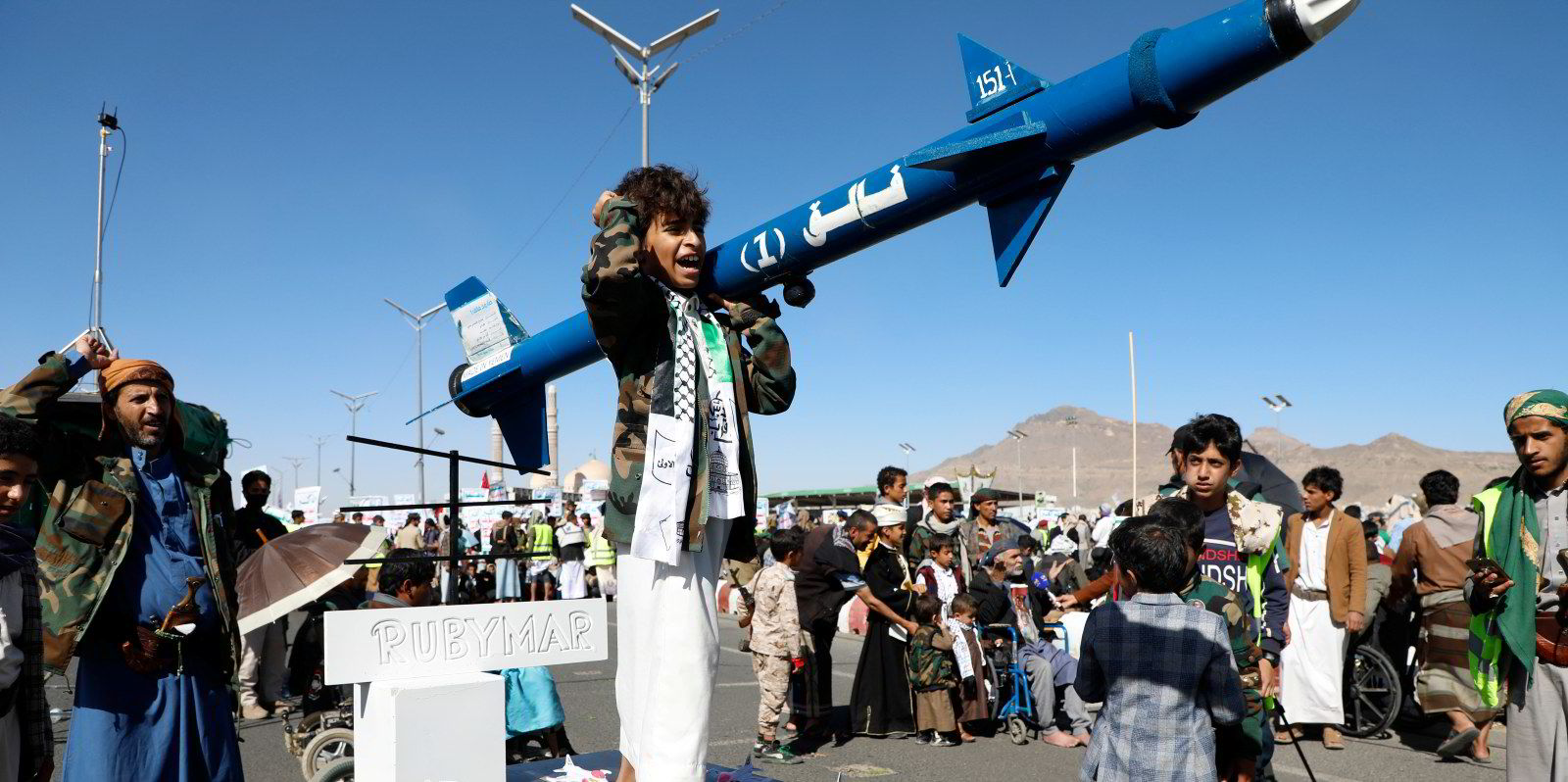Ships must obtain permits from the Iran-backed Houthi authorities before entering Yemeni waters, according to a senior minister.
The move is “out of concern for their safety”, said the country’s telecommunications minister on the same day as the latest attack on a container ship in the Gulf of Aden.
A Houthi television channel reported Misfer Al-Numair as saying that the regime was “ready to assist requests for permits and identify ships with the Yemeni Navy, and we confirm this is out of concern for their safety”.
The Houthis have launched more than 70 attacks since mid-November targeting commercial shipping and naval vessels. The group controls large parts of Yemen after a decade of civil strife.
The Liberian-flagged 2,169-teu MSC Sky II (built 1999) on Monday was targeted in a twin missile attack southeast of the port city of Aden with one hitting the ship and starting a fire.
Crew put out the fire and the ship continued with its voyage, according to the British naval information service, UK Maritime Trade Operations.
The Yemeni military said it targeted the ship with a “number of suitable naval missiles” and the hit was “accurate and direct”.
Houthi military spokesperson Yahya Saree said it had also launched missiles against US warships and that its strikes were “escalating and continuing”.
US Central Command said that it shot down two anti-ship cruise missiles around four hours after the attack on the MSC Sky II.
Saree called the MSC Sky II an Israeli ship. But the vessel is operated by MSC Shipmanagement based in Cyprus. Its registered owner is Thorsky Navigation Ltd, according to Equasis.
The ship was previously named Thorsky under the ownership of Norway’s Thor Dahl Shipping before it changed hands in 2021.
The rebels said they would continue to attack vessels after the 32,300-dwt Rubymar (built 1997) sank at the weekend, 13 days after it was hit. The Rubymar was the first vessel to sink during the Houthi campaign.
The group has said it would continue until the Israeli military ends its operation against the Hamas group in Gaza.
The attacks have forced operators to reroute their vessels via the longer Cape of Good Hope route. Shipping travelling via the Suez Canal was down 56% year-on-year in February, said PortWatch, an IMF and Oxford University monitoring service.
Read more
- IMO offers support as ship sunk by Houthis sparks pollution fears
- Clarksons wargames Middle East twists as uncertainty stalks shipping
- Sanctions squeeze leads Russia to surprise cuts in crude exports
- Bulker Rubymar sinks in Red Sea, 13 days after Houthi strike
- Several injured in Red Sea ‘security incident’ on stricken Rubymar




